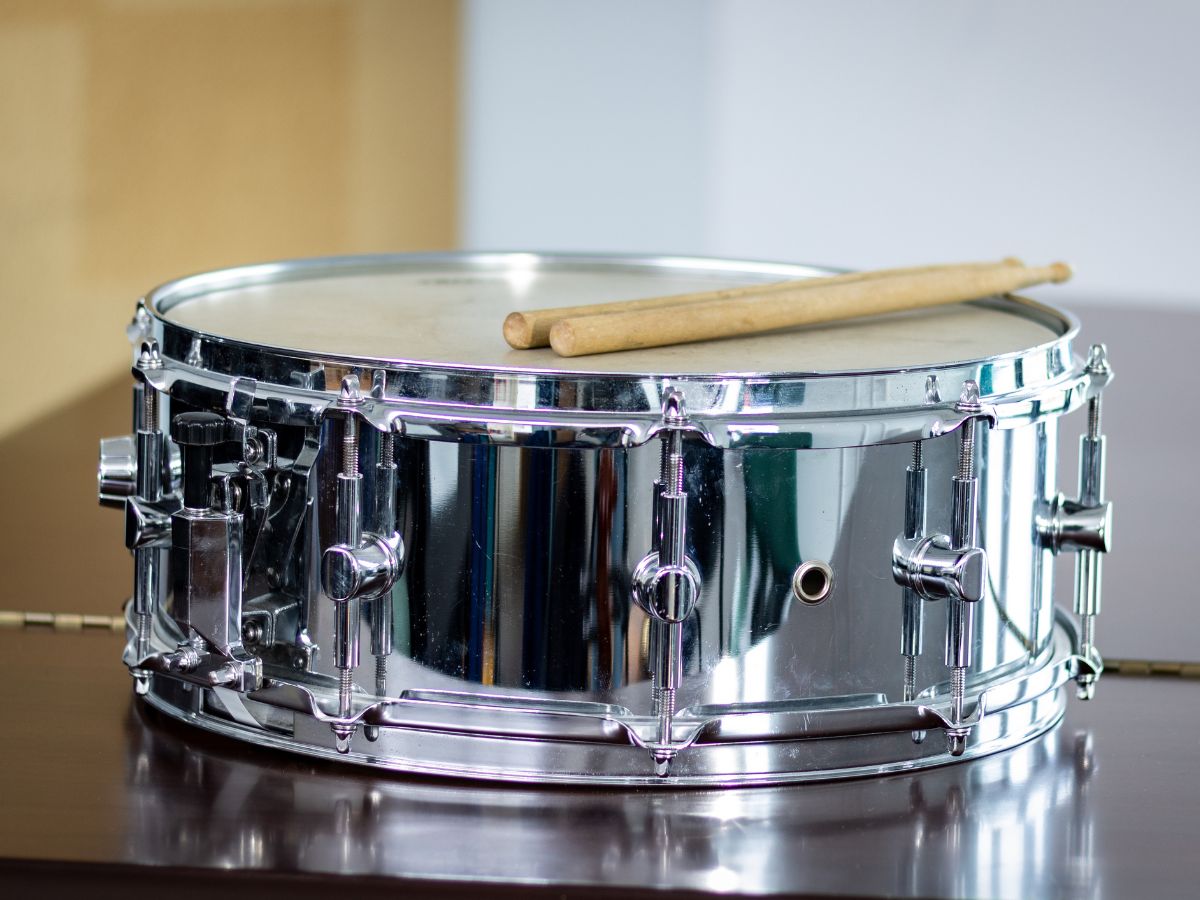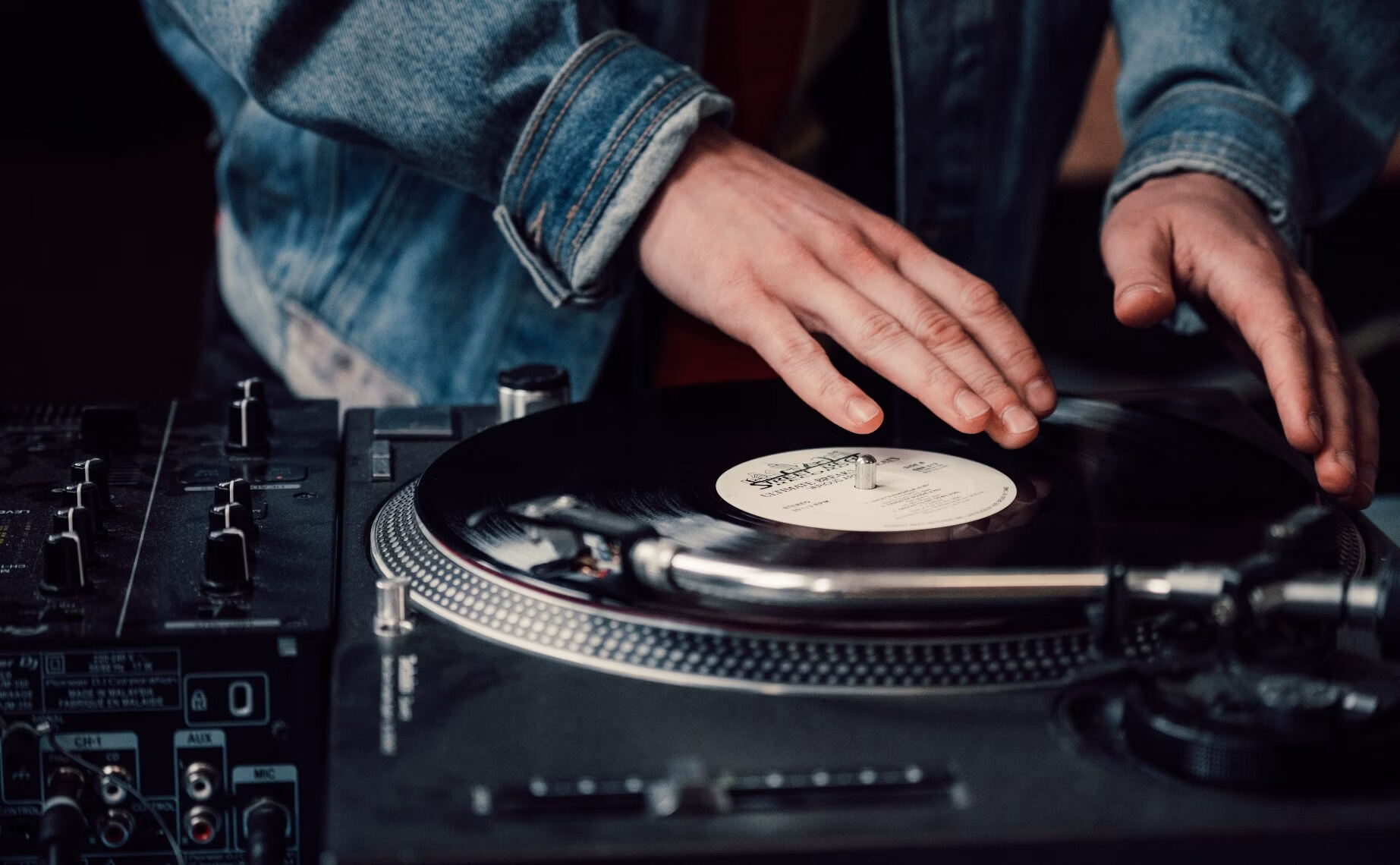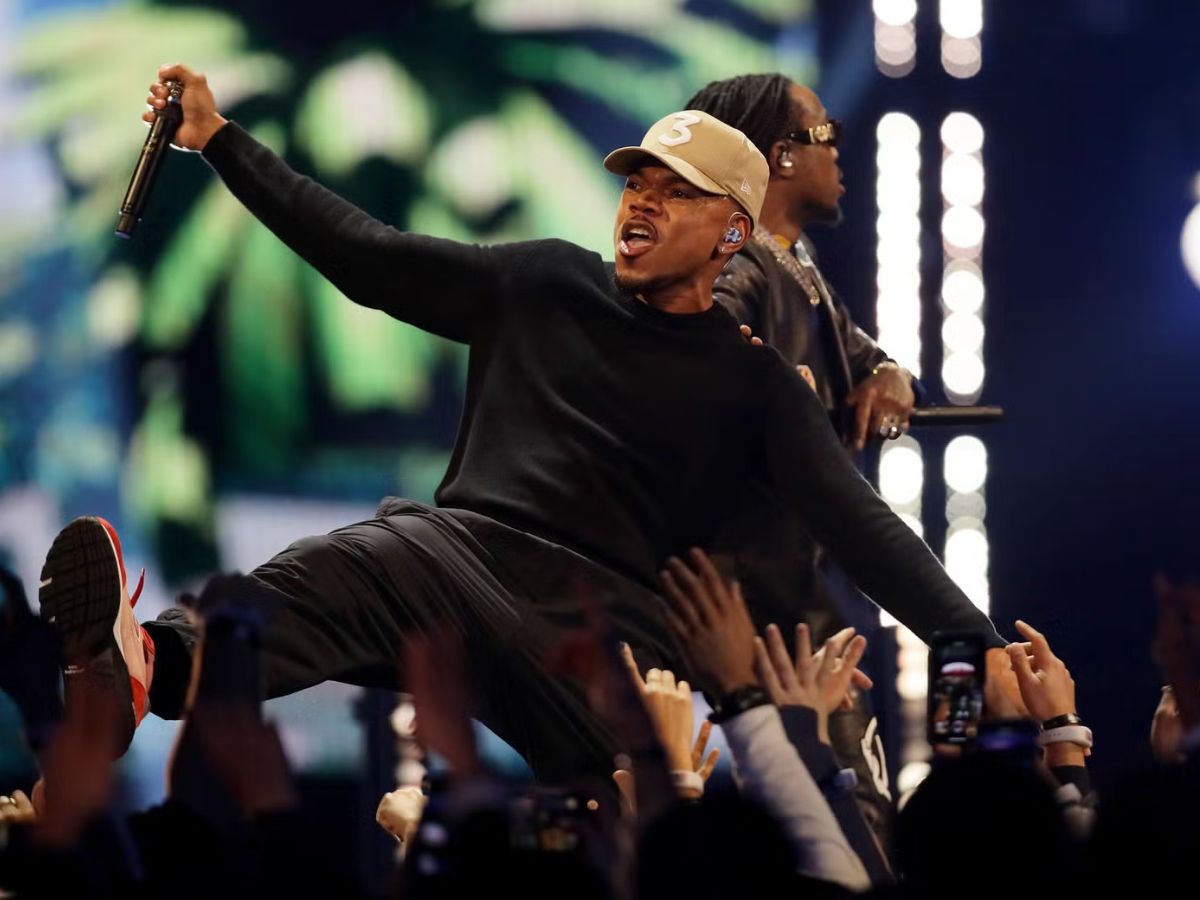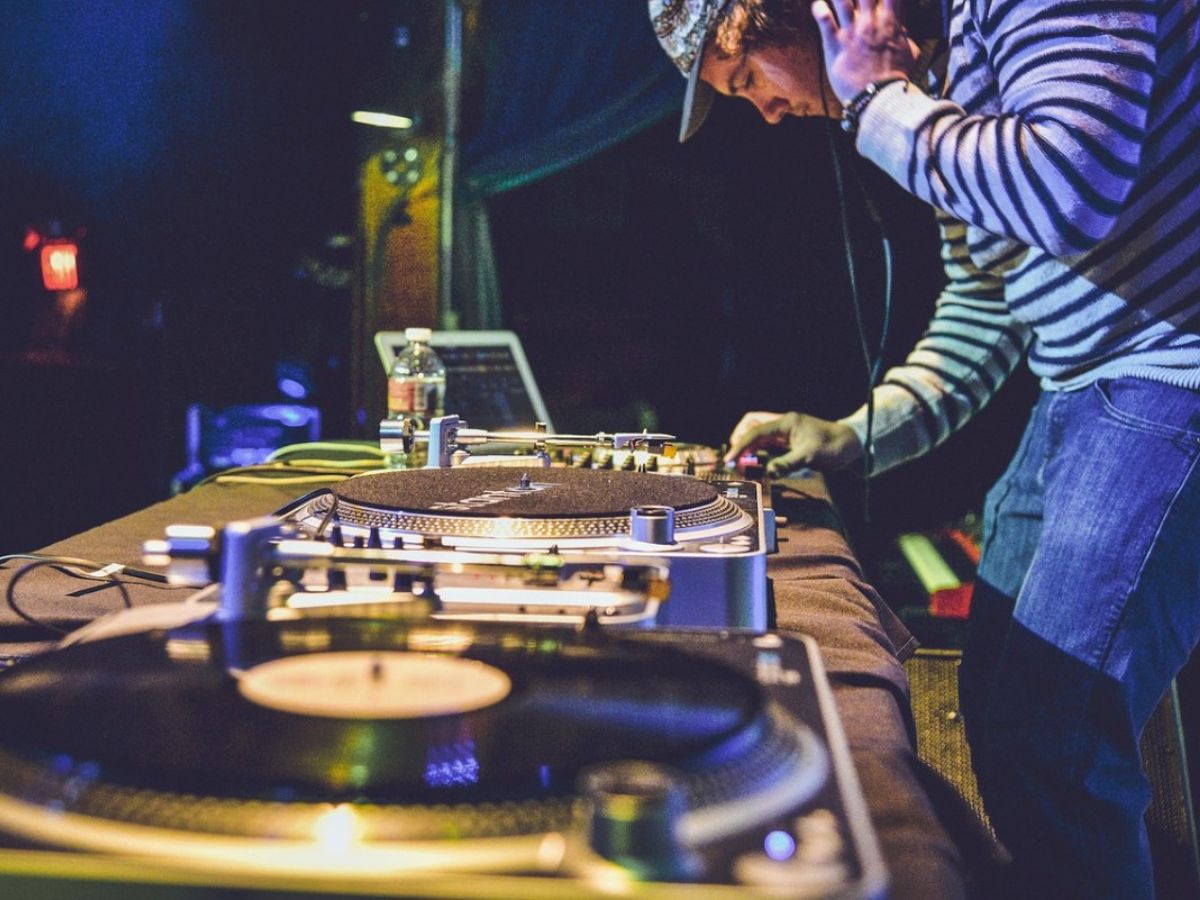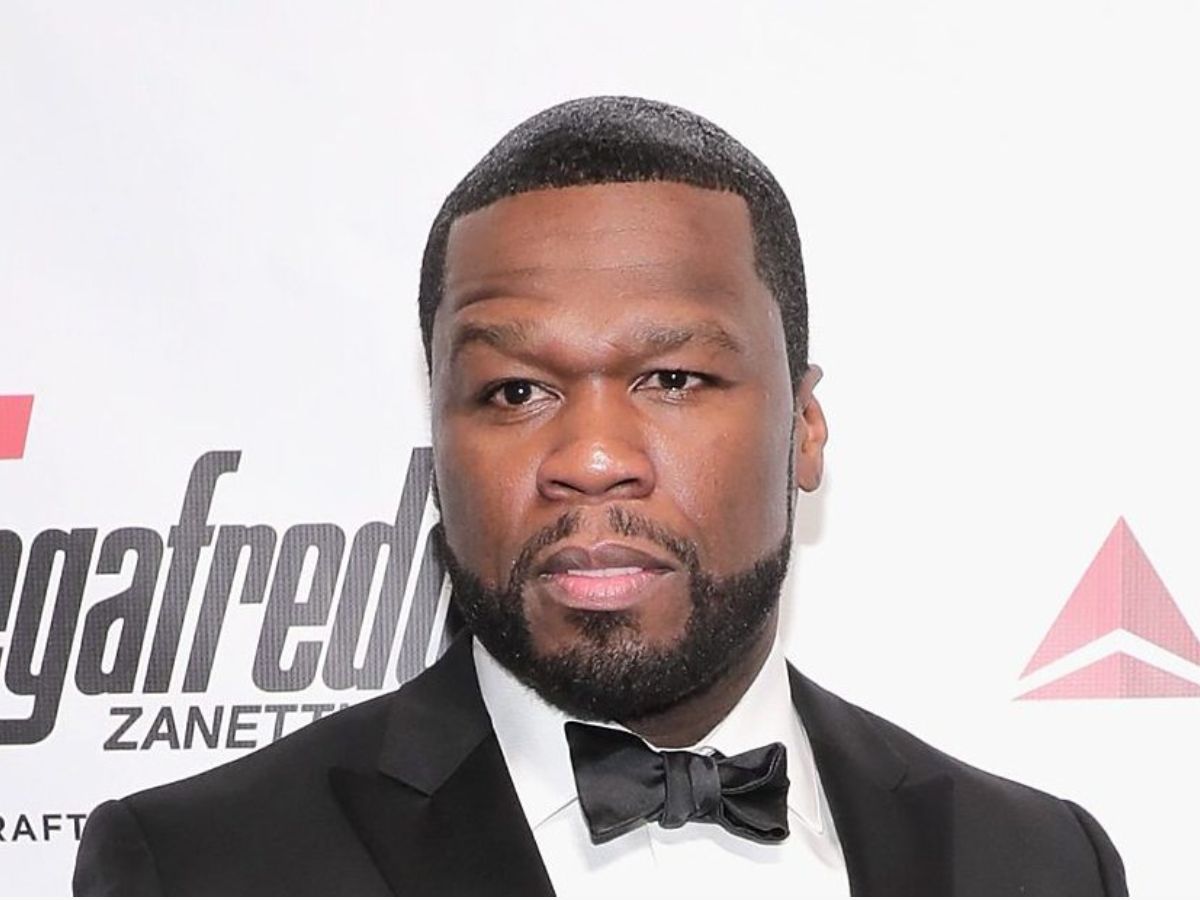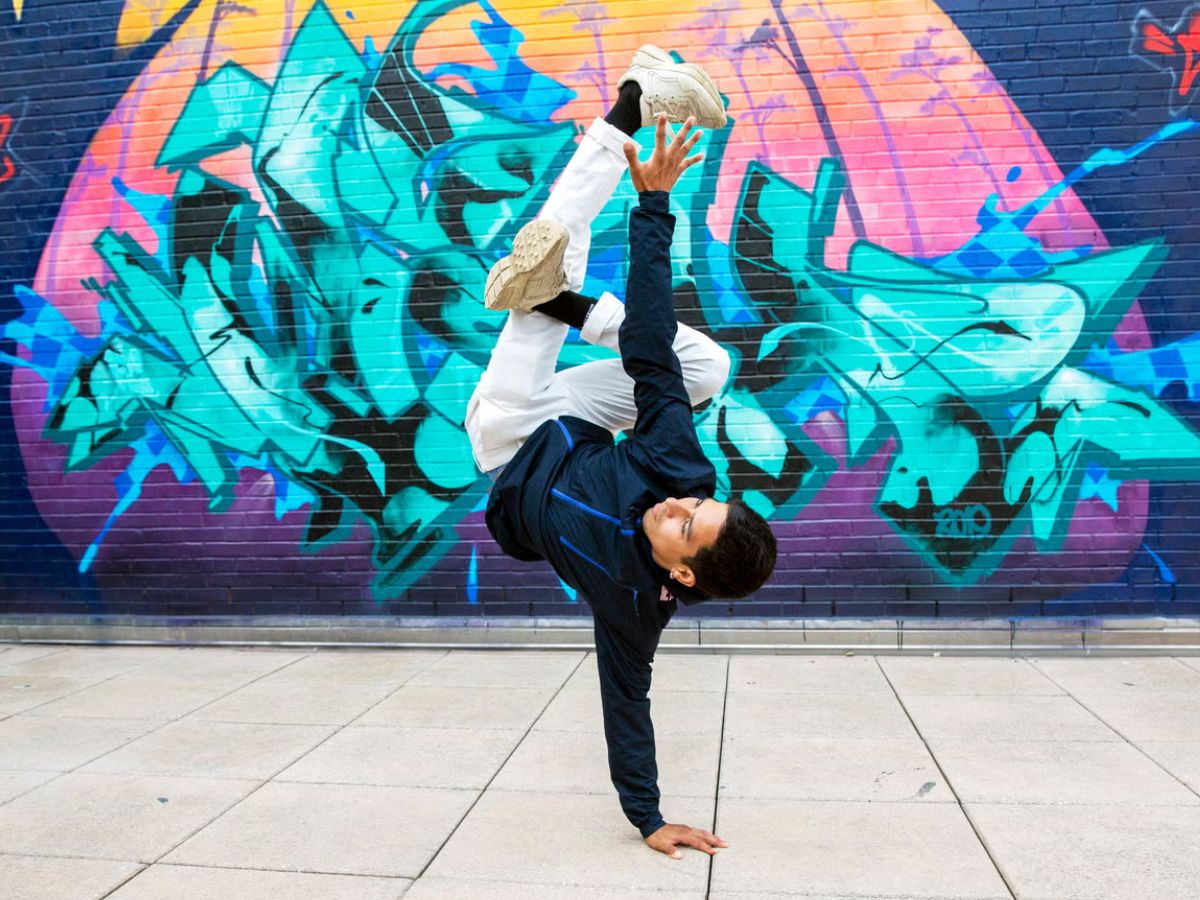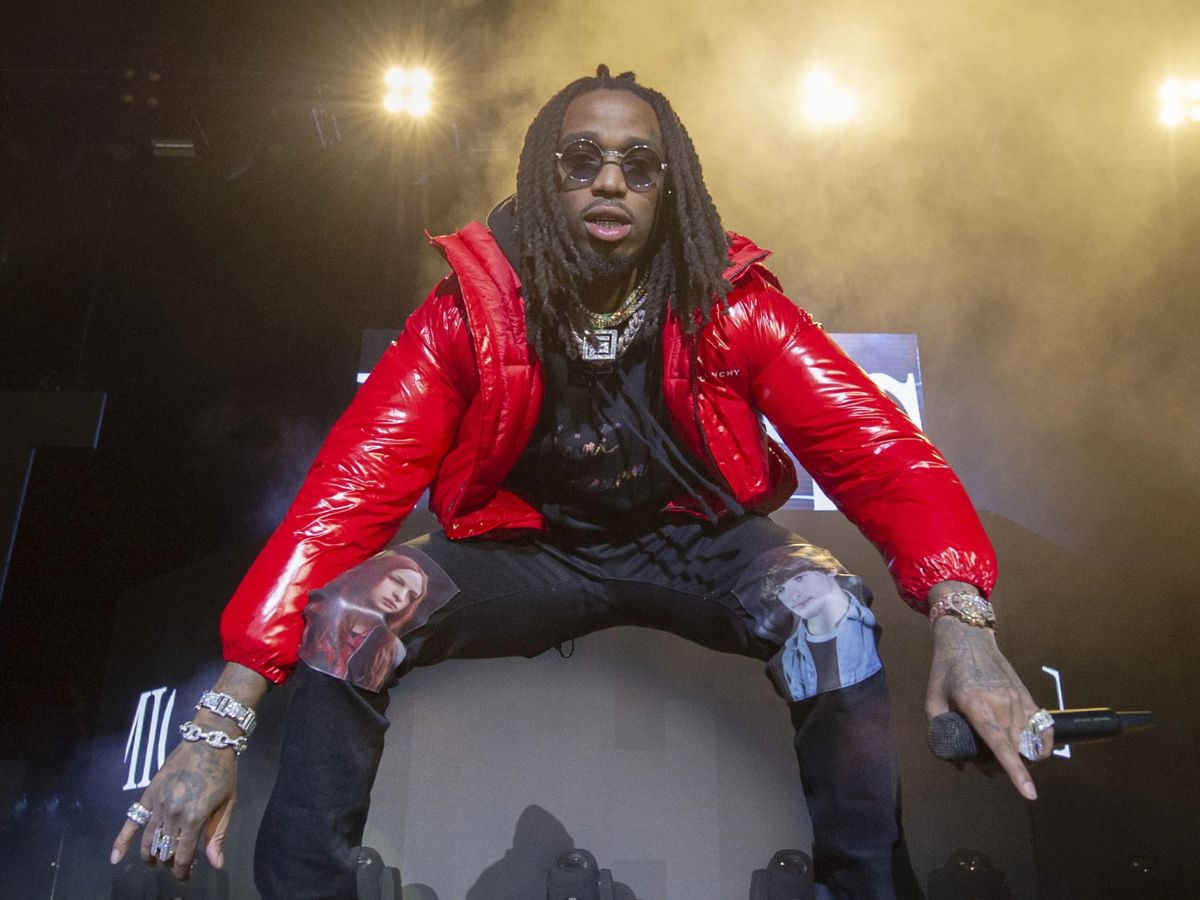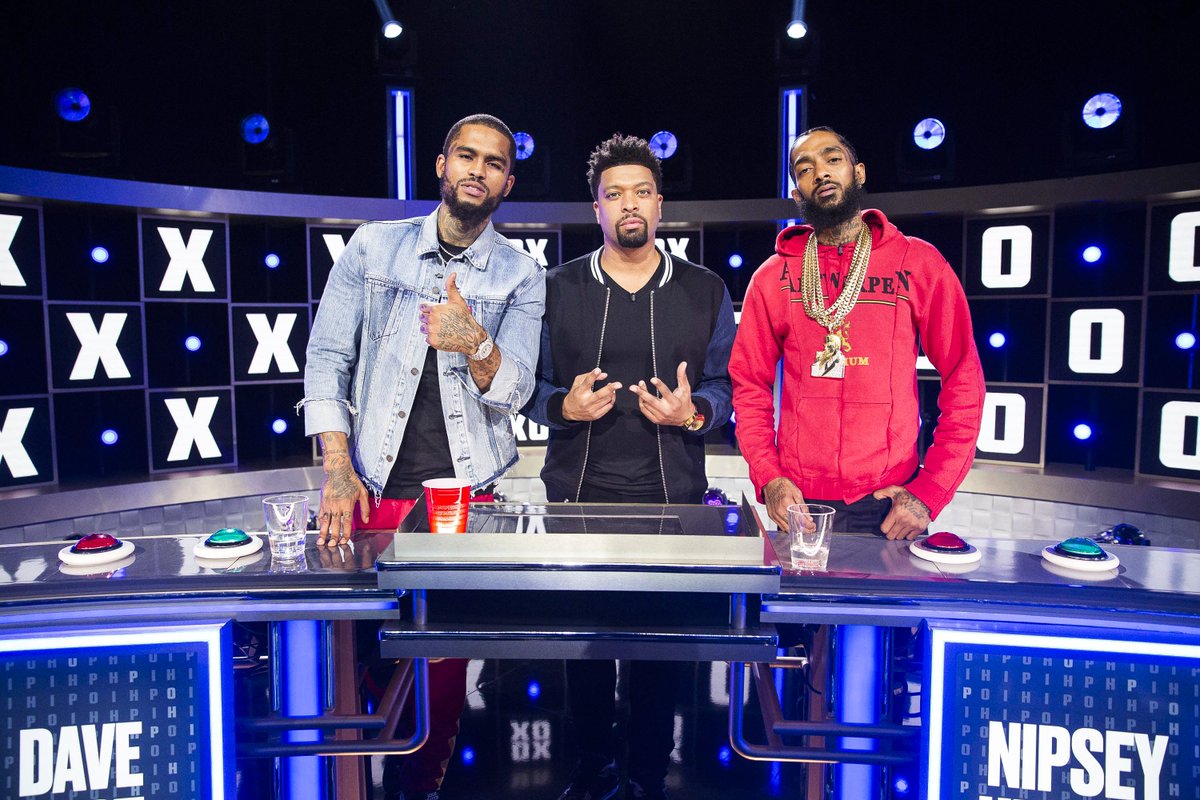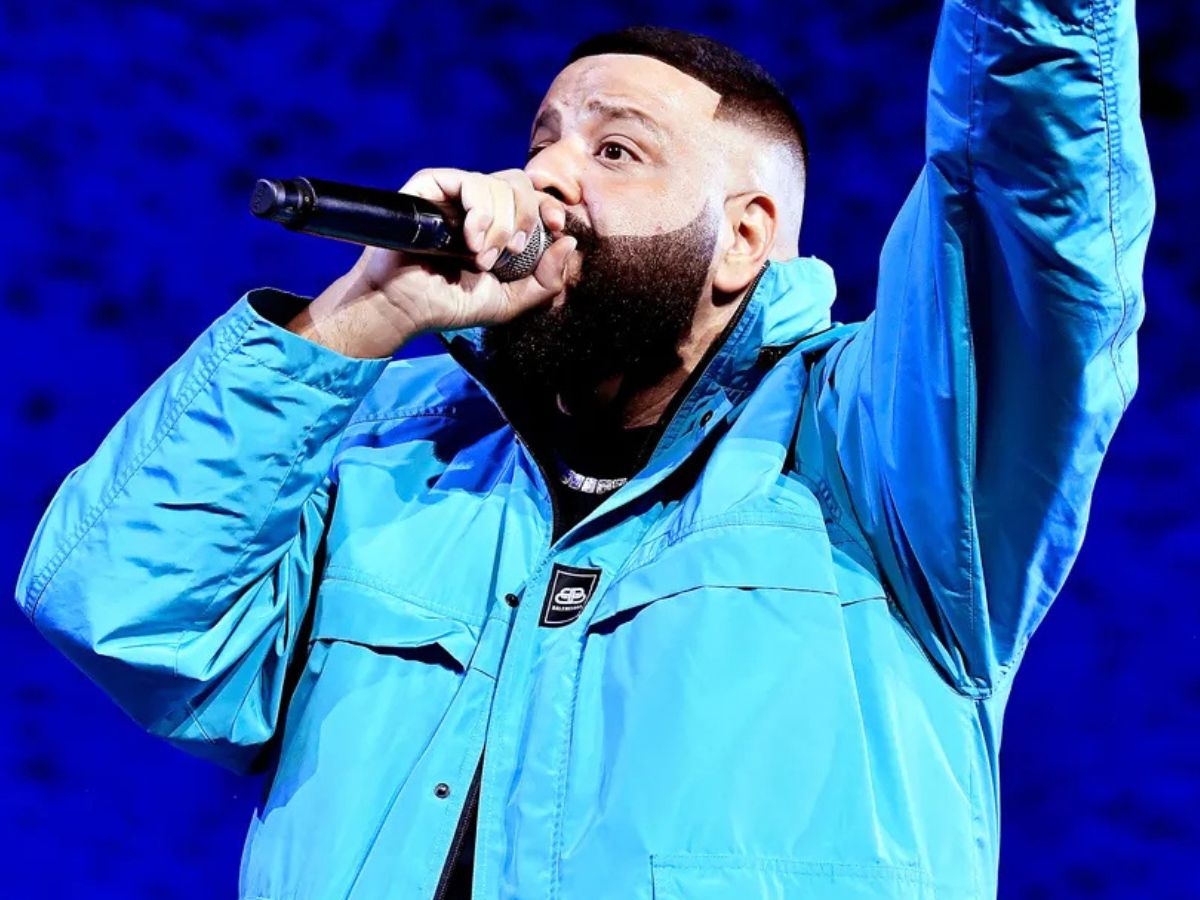

Hip Hop
What Is Southern Hip Hop
Modified: March 3, 2024
Discover the origins and unique sound of Southern Hip Hop. From its influential artists to its distinct characteristics, explore the essence of this vibrant genre.
(Many of the links in this article redirect to a specific reviewed product. Your purchase of these products through affiliate links helps to generate commission for AudioLover.com, at no extra cost. Learn more)
Table of Contents
Introduction
Hip Hop, a genre originated in the Bronx, New York, in the 1970s, quickly spread its influence across the United States, giving rise to various regional subcultures and styles. One of the most distinct and influential regional variations is Southern Hip Hop. Emerging from the southern states such as Texas, Louisiana, Georgia, and Florida, Southern Hip Hop has established its unique identity and made significant contributions to the genre as a whole.
Southern Hip Hop is characterized by its distinctive beats, catchy hooks, and lyrical themes that reflect the experiences and culture of the southern region. With its roots in the soulful sounds of funk, blues, and gospel, Southern Hip Hop has evolved over the years, blending elements of trap, bass-heavy production, and distinctive slang to create a sound that is instantly recognizable.
The rise of Southern Hip Hop can be attributed to iconic artists such as OutKast, UGK, and T.I., who broke barriers and brought regional pride to the forefront. Collaborations between Southern artists and mainstream acts helped expand the reach and influence of Southern Hip Hop, solidifying its place in the global music landscape.
This article will explore the origins, key characteristics, major artists, and subgenres within Southern Hip Hop. We will also delve into the commercial success and impact of the genre, as well as the controversies and criticisms it has faced over the years. By the end, you will have a comprehensive understanding of the evolution and significance of Southern Hip Hop within the broader scope of Hip Hop culture.
Origins of Southern Hip Hop
The roots of Southern Hip Hop can be traced back to the early 1980s, when artists from cities like Houston, Atlanta, and New Orleans began to put their own spin on the burgeoning genre. One of the earliest significant acts to emerge from the South was DJ DMD, who released the influential track “25 Lighters” in 1997. This song, with its slow, bass-heavy production and laid-back flow, showcased the distinctive sound that would come to define Southern Hip Hop.
Another pivotal moment in the Southern Hip Hop scene was the rise of the Geto Boys, a rap group from Houston. Comprised of Scarface, Willie D, and Bushwick Bill, the Geto Boys gained national attention in the late 1980s with their controversial and gritty lyrics. Their albums “Grip It! On That Other Level” and “We Can’t Be Stopped” brought Southern Hip Hop to the forefront and laid the foundation for future artists.
However, it was OutKast, hailing from Atlanta, Georgia, who truly solidified Southern Hip Hop’s place in the mainstream. Their debut album, “Southernplayalisticadillacmuzik,” released in 1994, showcased their distinct blend of funk, soul, and Southern slang. OutKast’s unique sound was embraced by both the East and West Coast, marking a turning point for Southern Hip Hop and proving that artists from the South could compete on a national and global stage.
As Southern Hip Hop gained traction, other cities and regions within the South started to develop their own styles and sounds. The “Chopped and Screwed” technique, pioneered by DJ Screw in Houston, became synonymous with the city’s Hip Hop scene. This technique involved slowing down and manipulating the tempo of songs, creating a hypnotic and laid-back vibe.
Overall, the origins of Southern Hip Hop can be attributed to a combination of influences, including the soulful sounds of the South, the gritty and raw storytelling of the Geto Boys, and the innovative approach of artists like OutKast and DJ Screw. This blend of styles laid the groundwork for the vibrant and diverse Southern Hip Hop scene that continues to thrive today.
Key Characteristics of Southern Hip Hop
Southern Hip Hop is known for its distinct characteristics that set it apart from other regional variations of the genre. These key elements contribute to the unique sound and cultural significance of Southern Hip Hop. Here are some of the prominent characteristics:
- Bass-heavy production: One of the defining features of Southern Hip Hop is its emphasis on deep, pounding basslines. These bass-heavy beats provide the foundation for the genre’s sound and create a powerful and energetic vibe.
- Lyrical storytelling: Southern Hip Hop often showcases vivid storytelling and detailed narratives that reflect the experiences and struggles of artists growing up in the South. From tales of street life to introspective reflections on personal journeys, Southern artists have mastered the art of lyrical storytelling, capturing the essence of their surroundings.
- Melting pot of influences: Southern Hip Hop draws inspiration from a wide range of musical genres. The influence of soul, funk, blues, and gospel can be heard in the melodies, samples, and vocal styles present in Southern Hip Hop tracks. This fusion of influences contributes to the genre’s rich and diverse musical landscape.
- Distinctive slang and cadence: The Southern accent and unique slang have made their mark in the world of Hip Hop. From the drawl of Houston to the fast-paced flow of Atlanta, Southern rappers bring their own linguistic flair to their music, adding a layer of authenticity and regional identity.
- Celebration of regional pride: Southern Hip Hop artists often take pride in representing their respective cities and states. This pride is showcased through references to local landmarks, culture, and traditions, creating a sense of unity and loyalty within the Southern Hip Hop community.
These key characteristics, combined with the genre’s historical context and cultural influences, contribute to the vibrant and distinct sound of Southern Hip Hop. Artists from the South have been able to carve their own lane and make a lasting impact on the global music industry through the incorporation of these elements into their music.
Influences on Southern Hip Hop
Southern Hip Hop draws inspiration from various sources, encompassing musical genres, cultural movements, and historical events. These influences have shaped the sound and style of Southern Hip Hop, contributing to its distinctiveness within the broader landscape of Hip Hop. Here are some of the significant influences on Southern Hip Hop:
- Soul, Funk, and Blues: The Southern region of the United States has a rich musical heritage, particularly in genres like soul, funk, and blues. Artists such as James Brown, Parliament-Funkadelic, and B.B. King have had a profound impact on the sound of Southern Hip Hop, with their soulful melodies, infectious grooves, and emotive vocal styles serving as the foundation for many Southern tracks.
- Gospel and Church Culture: The powerful influence of gospel music and the fervent spirit of church culture can be felt in Southern Hip Hop. The use of gospel samples, choir-like vocal arrangements, and religious motifs in lyrics can be attributed to the deep-rooted presence of Southern gospel traditions.
- Chopped and Screwed: Originating in Houston, Texas, the “Chopped and Screwed” technique, created by DJ Screw, has had a lasting impact on Southern Hip Hop. This technique involves manipulating the tempo and pitch of songs, resulting in a slowed-down and hypnotic sound. Chopped and Screwed became a trademark of the Houston sound, influencing artists such as UGK, Slim Thug, and Lil’ Keke.
- Civil Rights Movement: The Civil Rights Movement of the 1960s and its impact on Southern society have indirectly influenced the themes and messages within Southern Hip Hop. Artists incorporate social commentary, addressing issues of race, inequality, and the struggle for justice, drawing parallels between the past and the present.
- Regional and Local Culture: Southern Hip Hop is deeply rooted in the culture and traditions of the region. From the vibrant food scene to the iconic slang, Southern artists often celebrate and pay homage to their local culture. This connection to their roots fosters a sense of pride and authenticity in their music.
These influences have contributed to the unique flavor and artistry of Southern Hip Hop. By drawing from a diverse range of sources, Southern artists have been able to create a sound that represents their cultural heritage while pushing the boundaries of the genre.
Major Artists and Albums
Southern Hip Hop has produced a plethora of talented artists who have left an indelible mark on the genre. These artists have not only achieved commercial success but have also pushed the boundaries of Southern Hip Hop, paving the way for future generations. Here are some of the major artists and albums that have played a significant role in shaping Southern Hip Hop:
- OutKast – “Aquemini” (1998): OutKast, consisting of members Andre 3000 and Big Boi, is often regarded as one of the greatest Hip Hop duos of all time. Their album “Aquemini” seamlessly blends Southern-funk, jazz, and conscious lyricism. It solidified OutKast’s unique sound and earned critical acclaim.
- UGK – “Ridin’ Dirty” (1996): UGK (Underground Kingz), comprised of Bun B and the late Pimp C, were pioneers of Southern Hip Hop. “Ridin’ Dirty” captured their gritty lifestyle and showcased their unmatched chemistry. The album’s raw and authentic delivery made it a Southern Hip Hop classic.
- T.I. – “Trap Muzik” (2003): T.I. played a pivotal role in bringing Southern trap music to the mainstream. “Trap Muzik” showcased T.I.’s storytelling abilities and charismatic delivery while introducing the world to the trap subgenre that would heavily influence Hip Hop in the years to come.
- Master P – “Ghetto D” (1997): Master P, the founder of No Limit Records, made a significant impact on Southern Hip Hop with his album “Ghetto D.” The project’s gritty sound and street-oriented lyrics resonated with audiences, solidifying Master P as a Southern Hip Hop icon.
- Lil Wayne – “Tha Carter III” (2008): Lil Wayne’s “Tha Carter III” marked a defining moment in his career and Southern Hip Hop as a whole. The album showcased Wayne’s impressive wordplay and genre-bending experimentation, earning critical acclaim and multiple Grammy Awards.
These are just a few examples of the numerous artists and albums that have shaped Southern Hip Hop. Other notable figures include Scarface, Goodie Mob, Three 6 Mafia, and Young Jeezy, each bringing their unique style and contributing to the evolution of the genre.
It is important to note that the contributions of these artists extend beyond their individual albums. They have paved the way for future Southern Hip Hop artists, influencing the sound, and breaking down barriers, ensuring the continued growth and impact of the genre.
Regional Differences within Southern Hip Hop
Southern Hip Hop encompasses a vast and diverse landscape, with different regions within the South having their own unique styles and flavors. These regional differences contribute to the vibrant tapestry of Southern Hip Hop, showcasing the diversity and creativity of the genre. Here are some of the distinct regional differences within Southern Hip Hop:
- Atlanta: Atlanta has been a hotbed for Southern Hip Hop, known for its energetic beats, catchy hooks, and rapid-fire flows. Artists like OutKast, T.I., and Ludacris put Atlanta on the map, blending influences from soul, R&B, and trap music. Atlanta’s sound is characterized by its trap-infused production and intricate wordplay.
- Houston: Houston is renowned for its “screwed and chopped” sound pioneered by DJ Screw. This style involves slowing down the tempo of songs, creating a laid-back and hypnotic vibe. Artists from Houston, such as UGK, Scarface, and Chamillionaire, often incorporate soulful melodies and heavy basslines into their music.
- New Orleans: New Orleans has a unique blend of Southern Hip Hop with influences from the city’s vibrant jazz and brass band tradition. Artists from New Orleans, including Lil Wayne, Juvenile, and Cash Money Records, infuse their music with a distinctive bounce and infectious energy that reflects the city’s rich musical heritage.
- Miami: Miami’s Hip Hop scene is heavily influenced by its vibrant Latin and Caribbean roots. Artists like Trick Daddy, Pitbull, and DJ Khaled incorporate elements of reggaeton, dancehall, and Miami bass into their music. Miami’s sound is infectious, with high-energy beats and party-ready anthems.
- Memphis: Memphis is known for its dark and gritty sound within Southern Hip Hop. Artists like Three 6 Mafia, Young Dolph, and Yo Gotti bring a raw and menacing energy to their music, often infused with horrorcore themes and heavy bass. Memphis’s sound has a distinct edge, showcasing the city’s unique musical heritage.
These regional differences within Southern Hip Hop highlight the diverse influences and creative expressions within the genre. Artists from different cities and states have developed their own sonic identities, representing their respective regions and contributing to the overall richness of Southern Hip Hop.
It is important to recognize and appreciate the regional differences within Southern Hip Hop as they contribute to the genre’s overall dynamism and push the boundaries of what is possible within the realm of Hip Hop.
Popular Subgenres within Southern Hip Hop
Within the realm of Southern Hip Hop, several subgenres have emerged, each with its own distinct sound and style. These subgenres contribute to the diverse range of music that falls under the umbrella of Southern Hip Hop. Here are some of the popular subgenres within Southern Hip Hop:
- Trap: One of the most prominent subgenres within Southern Hip Hop is trap. Originating from Atlanta, trap music is characterized by its heavy 808 basslines, booming drums, and dark and moody atmosphere. Artists such as Gucci Mane, Future, and Migos have popularized this subgenre, showcasing their distinctive flows and street-oriented lyrics.
- Crunk: Crunk music emerged from the South in the late 1990s and early 2000s. Known for its high-energy beats and aggressive delivery, crunk incorporates elements of Southern bounce, electronic music, and gangsta rap. Artists like Lil Jon, Ying Yang Twins, and Three 6 Mafia brought the crunk sound to the forefront, making it a staple of Southern Hip Hop.
- Dirty South: The term “Dirty South” emerged in the 1990s to describe the raw and unfiltered sound coming out of the Southern states. This subgenre, closely associated with Atlanta and Houston, is characterized by its heavy bass, slow tempo, and gritty lyrical content. Artists like 8Ball & MJG, Scarface, and T.I. are often associated with the Dirty South sound.
- Bounce: Bounce music, originating from New Orleans, is a high-energy subgenre that incorporates elements of call-and-response, Mardi Gras chants, and rapid percussion. The sound is often characterized by its upbeat tempo, infectious hooks, and dance-friendly rhythms. Artists such as Juvenile, Big Freedia, and DJ Jubilee have been instrumental in popularizing bounce music.
- Screwed and Chopped: The Screwed and Chopped subgenre, popularized by DJ Screw in Houston, involves slowing down the tempo of songs and manipulating the pitch. This sound creates a hypnotic and laid-back vibe, often accompanied by chopped samples and screwed vocals. Artists such as Z-Ro, Slim Thug, and Lil’ Keke have embraced this subgenre as a staple of their music.
These subgenres within Southern Hip Hop highlight the diverse range of sounds and influences that have shaped the Southern Hip Hop landscape. They represent the creativity and innovation of artists within the region, pushing the boundaries of the genre and creating music that resonates with audiences worldwide.
It is important to recognize and appreciate the influence and impact that these subgenres have had on the broader Hip Hop culture, demonstrating the richness and dynamism of Southern Hip Hop as a whole.
Commercial Success and Impact
Southern Hip Hop has had a significant impact on the commercial success of the genre as a whole, propelling Southern artists to the forefront of the music industry and establishing a strong presence in mainstream culture. The commercial success of Southern Hip Hop can be attributed to several factors:
- Mainstream Crossover: Artists from the South, such as OutKast, T.I., and Lil Wayne, have achieved mainstream crossover success, breaking down barriers and expanding the reach of Southern Hip Hop. Their ability to appeal to a broad audience while staying true to their regional sound has contributed to the genre’s commercial viability.
- Regional Identity and Pride: Southern Hip Hop artists often embrace and celebrate their regional identity, resonating with their fan base and creating a sense of pride among Southern audiences. This loyalty has translated into strong support for Southern Hip Hop artists, driving album sales, concert attendance, and overall commercial success.
- Genre Evolution and Innovation: Southern Hip Hop has continuously evolved and introduced innovative elements, keeping the genre fresh and appealing to a wide range of listeners. Artists have pushed the boundaries of Southern Hip Hop by incorporating diverse musical influences, experimenting with production techniques, and introducing new subgenres, attracting attention and driving commercial success.
- Mixtape Culture: Southern artists have been influential in popularizing the mixtape culture within Hip Hop. Recognizing the power of free digital releases, artists like Lil Wayne and Gucci Mane utilized mixtapes to build anticipation for their official albums, generating a massive following and elevating their commercial success.
- Global Reach: The influence of Southern Hip Hop has spread far beyond the borders of the United States. Artists like Pitbull, who blends Southern Hip Hop with Latin influences, have achieved international success, opening up new markets and expanding the genre’s reach worldwide.
The impact of Southern Hip Hop goes beyond commercial success. It has played a vital role in shaping popular culture and influencing other genres of music. Elements of Southern Hip Hop can be heard in mainstream pop, R&B, and even electronic music. The genre’s impact is evident in fashion, language, and the overall aesthetic of modern-day music.
Furthermore, Southern Hip Hop has provided a platform for underrepresented voices, giving a voice to the struggles, experiences, and triumphs of the Southern communities. Through their music, Southern artists have tackled social and political issues, shedding light on the realities of life in the South for a broader audience.
Overall, the commercial success and impact of Southern Hip Hop have demonstrated the genre’s lasting power and influence. It has become a cornerstone of Hip Hop culture, shaping the music industry and capturing the hearts of audiences around the world.
Criticisms and Controversies
Like any genre of music, Southern Hip Hop has faced its fair share of criticisms and controversies. These criticisms primarily stem from concerns about lyrical content, portrayal of stereotypes, and the influence of materialistic and violent themes. While it is essential to acknowledge these criticisms, it is equally important to understand the broader context and complexity of Southern Hip Hop culture.
One common criticism directed at Southern Hip Hop is the explicit and often graphic nature of the lyrics. Some argue that this promotes violence, misogyny, and materialism. However, it is crucial to recognize that Southern Hip Hop, like any art form, reflects the realities and experiences of communities grappling with social and economic challenges. Artists use their lyrics to address these issues, giving voice to their struggles and expressing their truths.
Another criticism is the perpetuation of negative stereotypes within Southern Hip Hop. Some argue that the portrayal of drugs, gun violence, and hypermasculinity reinforces harmful stereotypes about Southern communities. However, it is essential to distinguish between artistic expression and real-life behavior. Southern Hip Hop serves as a medium for artists to express their lived experiences and critique societal norms. It is crucial to engage with the music critically while understanding the complexities within the genre.
Controversies within Southern Hip Hop have also surrounded specific artists and their actions. Instances of legal issues, feuds between artists, and provocative lyrics have sparked debates and divided opinions. While these controversies occasionally overshadow the artistry, it is essential to separate the actions of individuals from the genre as a whole.
Additionally, competition and regional rivalries within Southern Hip Hop have sometimes resulted in tensions and conflicts. These rivalries, while indicative of the competitive nature of the music industry, have sometimes escalated into violence and strained relationships between artists and their communities. However, it is important to emphasize that Southern Hip Hop has also been a force for unity and support, fostering collaborations and promoting a sense of community amongst artists.
Despite criticisms and controversies, it is essential to recognize the positive aspects of Southern Hip Hop. The genre has provided a platform for marginalized voices to be heard, conveyed social and political messages, and contributed to the broader cultural landscape. It is through critical engagement and dialogue that we can analyze the nuances within Southern Hip Hop and appreciate its artistic and cultural significance.
Conclusion
Southern Hip Hop has emerged as a powerful and influential force within the broader landscape of the genre. With its unique sound, distinct characteristics, and vibrant subgenres, Southern Hip Hop has made a lasting impact on the music industry and popular culture. From its origins rooted in soul, funk, and blues to the evolution of trap, crunk, and bounce subgenres, Southern Hip Hop has continuously pushed the boundaries of artistic expression.
Throughout its history, Southern Hip Hop has faced criticisms and controversies surrounding lyrical content, stereotypes, and controversies surrounding specific artists. However, it is essential to engage with the genre critically and understand its cultural context. Southern Hip Hop serves as a platform for artists to express their experiences, challenge societal norms, and address social issues affecting their communities.
The commercial success of Southern Hip Hop, as evidenced by crossover appeal, global reach, and widespread influence, is a testament to its cultural and artistic significance. Southern artists have achieved mainstream success while staying true to their regional roots, demonstrating the power and resilience of the genre.
As Southern Hip Hop continues to evolve, it remains a driving force behind the innovation and diversity within Hip Hop. It represents the unique experiences, perspectives, and cultural heritage of the Southern states. From Atlanta to Houston, New Orleans to Miami, each region within Southern Hip Hop contributes its distinct flavor and style, showcasing the richness and dynamism of the genre.
In conclusion, Southern Hip Hop is a genre rooted in the deep cultural heritage, struggles, and triumphs of the South. It has left an indelible mark on the music industry, shaping popular culture, amplifying marginalized voices, and providing a platform for artistic expression. Through its unique sound, regional pride, and ability to adapt and innovate, Southern Hip Hop continues to captivate audiences worldwide and serves as a testament to the power of music to inspire, connect, and transform lives.

